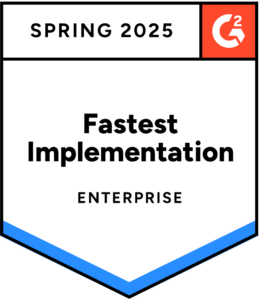Next Gen Accounting: Choose Your Own Adventure
Blog post
Share
As the field evolves, what skills do accountants need to chart their course?
The finance and accounting industry has traditionally been one that didn’t see a lot of change. Students graduating with an accounting degree had a pretty good idea of what their career trajectory would look like and what skills it would take to get them there. Whether public or corporate, bookkeeping or tax, the path to the top of whichever field you chose had been paved previously by many who came before.
However, in the past few decades the accounting field has seen a dramatic shift in the workforce landscape, propelled by a new generation entering the workforce in a post-pandemic environment. This new generation is looking for careers outside the traditional box. They value having growth opportunities, a work-life balance, learning and using new technologies, and professional development – things that aren’t synonymous with traditional accounting roles. In fact, this has led to a significant accounting shortage, as the number of people graduating with accounting degrees has declined in such high numbers that there is a huge gap between the number of accountants retiring and the roles that are being filled by new entrants.
So, what are the skills for accounting today? To keep up with demand, the industry is starting to see a dramatic transformation – one that will redefine the scope of what it means to be an accountant today. This requires new skill sets, new job descriptions, and new technologies, but the end result will be a healthy pipeline of talent that brings maximum value to businesses.
Skills for accountants: technology is leading the way
There’s no doubt that technology is fast becoming a required core competency in the office of finance. Those graduating into the workforce are adept at using many of these technologies already. Programs with accounting technology degrees have started to emerge, allowing accountants to shift their training to things like cloud computing, artificial intelligence, and machine learning. Whereas an accountant may have previously spent most of their time balancing spreadsheets, matching transactions, and correcting errors, with today’s automation tools in place, accountants’ jobs may look a little different.
According to Gartner, new roles are starting to emerge–accounting transformation leaders, accounting technology leads, and accounting analytics managers are all roles that have been proposed as future career paths. Administrative, analytical, and advisory roles are becoming more prevalent with skills required in doing things machines cannot – decision making, problem solving, advising, and extracting critical insights.
Chart your new future path
According to Ernst & Young, 87% of executives support creating alternative paths to accounting careers to expand the pipeline of talent. And CFOs, according to Gartner’s Turn AI Hype Into Growth with Upskilling Programs report, are challenged by the current lack of data science skills among their teams.
Whether you’re new to the field or looking to add new skills for accounting to your arsenal, now is the time to prioritize learning and experimenting with new technology. Those who fear technology and AI will replace their jobs should instead embrace the increasing future demand for technical expertise and data analysis that using this technology can open. Using tools to automate tasks like transaction matching, journal entry, reconciliation, and task management enables you to focus your time on things that require deeper analysis and a higher level of thinking.
In addition to administering new technologies, opportunities also open up in areas like business strategy – positioning the office of finance as an even greater strategic partner able to integrate into almost every department.
Whether you’re just starting your career or are responsible for hiring the next generation of accountants, think about the different skill sets and training that can fill new roles emerging from the use of automation tools. Today, skills for accounting include data mining, data visualization, financial modeling, coding, statistical analysis, and machine learning, and they can all be leveraged into long-term careers in finance and accounting.
Emerging career paths that may be of interest to those looking to participate in business transformation include:
- Accounting analytics
- Cybersecurity and forensic accounting
- Data mining and data science
- Business information
- Business intelligence
- Digital tax and accounting
- Financial technology
- Advising and consulting
Being an accountant today extends far beyond traditional bookkeeping and number-crunching. Next-gen accountants have the opportunity to position themselves as strategic advisors for both businesses and individuals. Armed with tools that are more accurate and agile, they can provide invaluable guidance and insight on managing risk and maximizing growth. Those looking for a career path forward in this industry have more exciting opportunities than ever before in areas of technology, data analytics, and management. By embracing this shift in traditional roles, accountants will continue to play a more prominent role in shaping business futures and will emerge as strategic leaders and CFOs.
Written By: Elizabeth Connors, Product Marketing Manager






